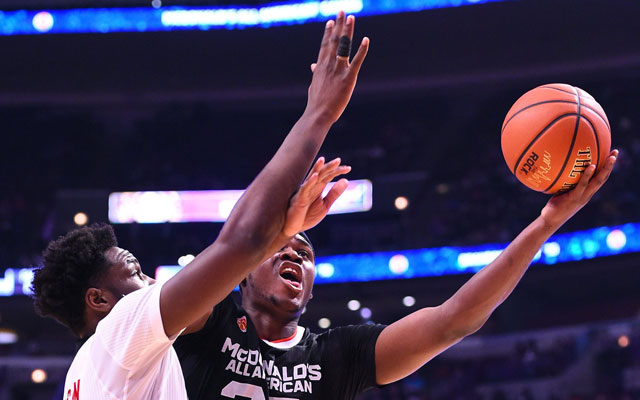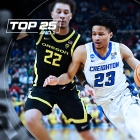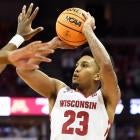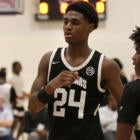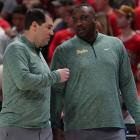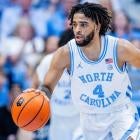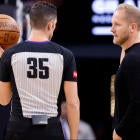CBS Sports college basketball writers Gary Parrish, Matt Norlander and Sam Vecenie spent the July evaluation period at various NCAA-sanctioned events. They asked for honest opinions on players, coaches and issues in the sport. They'll be sharing those opinions, from nearly 100 Division I basketball coaches at all levels, over a three-week period. This is our annual Candid Coaches series.
Previous poll questions:
• Which eligible NCAA player would you take over all others?
• Which coaching hire was college basketball's best this offseason?
• Will a woman be hired as a Division I assistant in the next three years?
•Are you OK with the idea/philosophy of all freshmen being ineligible?
Today's poll question is one we all agreed enthusiastically about asking coaches this time around. The way recruiting is these days has changed from what it was even three years ago, let alone a decade prior or the Paleozoic era of college hoops courtship known as the early 1990s. How coaching staffs recruit and collect players is an ever-evolving process. There are very few dictums that ring true in 2015 that you could've used in 1985. The "landscape" is ever-changing. But for most of this century there has been a constant, a major factor that seems to be increasing in power and potency: Big Shoe Company.
Or is that something totally overblown? Is this an easy default talking point that's not based in a lot of reality? We went to the coaches to get their stories and perspectives.
And so we asked:
Has a shoe company ever directly cost you a recruit or player?
- No: 58 percent
- Yes: 42 percent
QUOTES THAT STOOD OUT
• "Here's one. Last year, I'm at [SEC school] and this player [from the ACC] is transferring out. He played with [an AAU team] that's an Under Armour team. Now, I grew up in the same area as this player. My dad, his dad, uncles: all are best friends. My brother went to the same high school [previously] where this player went. I had the entire thing surrounded. Trust me, he was going to transfer to our school. But the coach of this AAU team locked the entire visit. I went from going to get the kid to not even getting a visit. He went and visited [SEC school], [Big Ten school] and [Big East school]. Believe it or not, we're still trying to recruit members from that AAU team. But if it wasn't for the guy there with Under Armour, that coach, then it’s over with. We get him. That’s basically family. But we couldn't even get a visit."
• One coach who failed to land a player said, "I really believe the Under Armour deal sealed our fate."
• "Shoe companies are a factor in recruiting. Not sure if I have ever lost one, but I surely have not pursued guys because they play for certain shoe companies."
• "There's one player I know I didn't get because of Nike ... and I work for a Nike school!"
• "I had a kid commit to me and then de-commit because of a shoe company. Five-star player. It happens."
• "I don’t think we have any clear evidence that that took place [with us]. As we continue to see Under Armour make a push to become one of the major shoe companies, the competition is much more; it’s stiffer. I think Nike, Adidas, they’ve got a lot of pressure on them. As we look to the future, it will play much more of a role. When we recruit it’s always on our minds. When we lose a recruit, it definitely could be reason, but I don’t think there’s any real proof that we’ve lost a guy we’ve recruited really hard to another school (only) because of the shoe company. But does it play a role."
• "Yes! Under Armor and Adidas deliver players to their schools."
• "[Our school] being one particular shoe company and that particular prep school coach and (his) AAU program is a different name brand, it’s so funny because the list was cut to all programs under this particular shoe brand. I thought I did an unbelievable job with the player and the parents, but we weren’t getting any traction because we weren’t that shoe brand."
• "Never happened to us but I've heard of Under Armour guys only going to Under Armour schools. It is happening more and more now."
• "I’ll say NOT having a relationship with a shoe company with a player cost us, 100 percent. We had a guy coming in, close friend was Mr. Basketball in the state. Coming into his senior year, his AAU team’s budget got increased $150,000. He wound up going to our rival. And you can never prove that, but it’s funny how things come out after the fact. That’s what was relayed third-party. The shoe company influence is this real thing. It’s going on, and if you’re not aligned you’re gonna get hurt."
• "I can’t prove that, but I know that shoe companies that are not Adidas don’t want their kids going to [my school]. They want their returns quick and would rather have them in Nike or Under Armour shoes. Under Armour doesn’t really have a one-and-done yet, but Adidas does. They’re no different than agents."
MY TAKEAWAY
In terms of off-the-record or even "I'll tell you this, but I don't even want you quoting it anonymously" stories, the only question this year that competes with this one was last Friday's survey on female assistants in college basketball. A few quotes with today's survey had to have schools and player names redacted out of deference to complete anonymity.
But here's the scoop. Between myself and my colleagues, Gary Parrish and Sam Vecenie, more than 90 coaches were polled for this question. And at least 60 percent of those polled came from schools defined as "Power 5" in addition to the Big East. What intrigued me in gathering the info was, as you'd expect, most guys at small schools or mid-majors said "no," but even then I had a couple of coaches tell me it's happened at their level, too.
And a few guys at power-conference schools said no, a couple of them saying no because they couldn't honestly claim a shoe company was the deciding factor in a kid's decision, which is at the heart of our poll question.
Shoe companies and their varying and sometimes intimidating influence is something very much a part of the modern culture of college basketball recruiting. Befriend them, embrace them, or else. There are coaches who believe certain players coming from certain AAU programs have little-to-no chance of NOT picking a school with identical shoe-company ties. And Under Armour's push to get on the level of Adidas and Nike had a lot of coaches talking. Under Armour's reconnaissance moving forward will be something to keep a close eye on.
"Diamond Stone to Maryland is going to be the game-changer," one coach told me of the 2015 five-star big man -- out of Wisconsin -- because Stone is the first five-star/probable top-20 pick to go to an Under Armour school.
We (the fans, maybe media, and even coaches) would like to think recruiting can be done without the sway of conglomerates like shoe companies. But Nike, Adidas and Under Armour are not just big business, but mega-merchandising. And on a basic level, they view it like this: Invest a lot of money in AAU programs and college programs so that the rare high school player who comes out and makes it to the NBA repays those dividends down the road. He stays loyal to the brand.
That's the grand plan, anyway. Watching how these shoe wars are changing is very interesting, too. Most in the business believe it will only intensify in the next couple of years.
This notion of players staying true to a shoe company is not a widespread concept nor an exclusive thing, not by a long shot. Players commit to Nike schools after coming out of AAU programs with Adidas ties, and vice versa, and cross-pollination with Under Armour to the other two as well. Players without four- and five-star ratings for the most part don't even get involved in these kind of turf wars.
Nonetheless, in talking with scores of coaches, it's clear they feel the push and pull of Big Shoe Company and its tentacles stretching ever deeper into the sport, wiggling about and changing the way recruiting, and business, is done more and more with each passing season.
